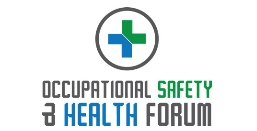Ensuring the safety and wellbeing of employees is a top priority for senior occupational health and safety professionals across the UK’s private and public sectors. A key element of this responsibility is selecting the right first aid partners and solutions for your organisation. With a wide range of solutions and evolving safety requirements, it’s essential to choose a partner who can meet your specific needs. Here’s a guide to help you approach this critical task, based on delegate requirements at the Occupational Safety & Health Forum…
1. Assess Expertise and Compliance with Regulations
The first step is to evaluate the potential partner’s expertise and ensure they are compliant with the Health and Safety (First Aid) Regulations 1981 and any industry-specific regulations. Your partner should provide solutions that meet the legal requirements for first aid provision in your particular sector, ensuring your organisation remains compliant.
Check the partner’s credentials, including their ability to deliver HSE-compliant training, and whether their trainers are accredited by recognised bodies, such as the Resuscitation Council (UK) or St John Ambulance. They should also be able to tailor their training programs to the unique risks and needs of your workplace, whether it’s a high-risk environment like construction or a low-risk office setting.
2. Tailored Solutions and Risk-Specific Training
Not all workplaces have the same first aid requirements. It’s vital to select a partner that offers customised first aid solutions based on your risk assessments. A quality first aid partner should help you conduct or review a first aid needs assessment, which evaluates the number of employees, workplace hazards, and specific risks, and then recommend appropriate levels of first aid cover.
They should provide sector-specific training, whether it’s dealing with injuries related to manual handling in warehouses, burns in laboratories, or stress and anxiety in office environments. In addition, mental health first aid training is increasingly recognised as crucial, and your partner should offer this as part of their solution.
3. Training Delivery and Flexibility
Flexibility in training delivery is key. Look for a first aid provider that offers a range of training formats, including in-person training, blended learning (combining online and in-person components), and fully virtual training for remote or hybrid teams. On-site training is particularly valuable for addressing specific workplace risks, as it allows trainers to use real-life scenarios tailored to your environment.
In addition, assess the frequency of refresher courses and recertification options to ensure that your employees maintain up-to-date skills. A provider that keeps pace with the latest first aid techniques and updates to regulations is essential.
4. Reliability and Responsiveness
Reliability in delivery and ongoing support is another critical factor. Ensure that your chosen partner can meet training deadlines and handle the logistics of training large groups if needed. Look for a partner that is responsive to your needs, with a strong focus on customer service and an ability to adapt quickly to changes, such as scaling up services during peak periods or emergencies.
5. Sustainability and Innovation
In today’s safety landscape, choosing a partner that embraces sustainability and innovative solutions can add value to your organisation. Consider providers that use sustainable practices in their equipment and materials, such as eco-friendly packaging for first aid kits or paperless certification processes. Additionally, partners who incorporate technology such as apps for first aid management or virtual reality (VR) simulations for immersive training are ahead of the curve.
Conclusion
Selecting the right first aid partner is a crucial aspect of ensuring employee safety and regulatory compliance. By focusing on expertise, tailored solutions, flexible training delivery, reliability, and innovation, senior occupational health and safety professionals can ensure they choose a partner that not only meets their organisation’s immediate needs but also evolves with the changing landscape of workplace health and safety.
Are you searching for First Aid solutions for your organisation? The Occupation Safety & Health Forum can help!
Photo by AllGo – An App For Plus Size People on Unsplash


